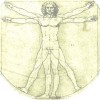Is Catholicism and Paganism similar?
Many religion now see Catholicism and Paganism more similar to each other. For example, the celebration of Christmas in Dec 25 by Catholics is rooted from a Pagan celebration according to some religion.
The leaders of Catholicism have created a giant bowl of steaming horse turds and put Parmesan cheese on top.
For that matter so have all the other demonicnations......Oh, I mean denominations.Another example is that during christmas, why is there a Santa Claus? what is his role to the birth of christ? None I think.
Santa Claus was originally Saint Nicholas, a saintly bishop who was generous. To celebrate his day in early December, children found little gifts hidden for them, supposedly by St. Nichololas. Of course, Americans had to take it whole hog.
Well quiet ...
 (sorry, I couldn't say that without laughing) now that you have condemned the Catholic church and all the "other" Christian denominations maybe we should put your denomination under the magnifying glass. Correct me if I'm wrong but I think you said in a couple of posts that you are a Messianic Jew, didn't you?
(sorry, I couldn't say that without laughing) now that you have condemned the Catholic church and all the "other" Christian denominations maybe we should put your denomination under the magnifying glass. Correct me if I'm wrong but I think you said in a couple of posts that you are a Messianic Jew, didn't you?
It’s important to remember that the Protestant Church was started by an ex-communicated Monk and everything that was used to establish this Lutheran Church in 1517 was inherited from the Catholic Church. The Protestant Church inherited the bible that the Catholic Church used, the dogma, doctrine, rituals and regalia.
Therefore if the Catholic Church is similar to paganism so is the Protestant Church simply because the Catholic Church is the mother of the Protestant Church.You probably posted this for fun but is profoundly true. Protestantism in general, has its roots in Catholicism.
Did you arrive at this by logic or church history?I disagree.
Protestantism is a word coined by the Catholic Church, I believe, to try to maintain the argument that the Catholic Church came into existence first.
It's kind like me starting a unique business, then someone else trying to take credit for it by starting an offshoot of that business, then them calling me a copycat.Protest(antism) was a protest in the early 1500's protesting the corruption of the catholic church. Protestants still considered themselves catholic at that time.
catholic, yes, but not Catholic as in Roman Catholicism.
Yes, Catholic as in Roman Catholicism. There was no other religion(as far as they were concerned) in the Europe of the time.
The Orthodyx and Roman Church split in 1054 AD and it was basically due to a disagreement concerning the hierarchy. The Orthodyx wanted to have only a Patriach and the Romans wanted a Pope. This is basically what separates the two churches, but the doctrine and dogma is all the same. An Orthodyx Priest can be married if he was married before becoming a Priest, however Roman Priest are forbidden to be married.
It was the Orthodyx Church that put the bible together, made Yeshua/Jesus divine, made Mary the mother of God and established the Trinity. As a matter of fact it was the Orthodyx Church that borrowed/hijacked the pagan customs and rituals bringing them into Christianity.
The Facts if you care to read them;
— 40 —
What is the difference between a Protestant
church and a Catholic church?
Although both Protestants and Roman Catholics share the common ground of being founded upon faith in Jesus Christ, there are significant differences between the two groups. From general observation, one can see contrasts in everything from the way that their clergymen dress, to the way their services are conducted. Unlike most Protestant churches, Catholic masses are conducted in a liturgical fashion, with much emphasis upon symbols, rituals and ceremony.
In Addition, the Catholic church has traditionally regulated the type of Bible translation used in the church. For centuries, the only version authorized for use was the Latin Vulgate, a translation from the original languages by Jerome, in around 400 A.D. This Bible reads very similar to Protestant translations, however with a major exception. The Catholic version contains the Apocrypha, a collection of seven complete books and a few additions to others. These are considered non-inspired writings written between the period of the Old and New Testaments. Only one is actually dated. Two books, Judith and Tobit tell of the Assyrian and Babylonian invasions. Two more, 1st and 2nd Maccabees record the Jewish war of independence of around 165 B.C. Two more, Ecclesiasticus and Wisdom of Solomon, are considered books of wisdom. Another is an addendum to Jeremiah, and there are short additions to Esther and Daniel. The Protestants do not include them because they have never met the criteria for divine inspiration. Further, the writings of Jewish historian Josephus (in 90 A.D.) indicated that the Jews did not accept the books of the Apocrypha as a part of their scriptures, and although Jesus and the Apostles quoted frequently and accurately from almost every other Old Testament book, never once did they quote from the Apocrypha. Even if accepted, it would not alter the message of the New Testament, and it doesn't appear that much, if any, of the doctrines of the Catholic church had any foundation from the Apocrypha
As we have said, there are many differences worth noting between Protestants and Catholics. However, the main distinction that sets them apart is the authority to which they look for their core beliefs. To help you understand this, let's first explain some of the detail about their origin in church history.
Catholic comes from the Greek, KATHOLIKOS, which means "throughout the whole, or universal," and was used as a general reference to the entire Christian church until the reformation period. However, as early as the fourth century, the Catholic church began adopting traditions and beliefs which were never a part of original Christianity as seen in the New Testament. It appears that many of these new ideas first emerged from the era of the Roman Emperor, Constantine who ruled from 313 to 337 A.D.
In contrast to his predecessor, Diocletian, who had vowed to destroy Christianity in 303, Constantine claimed a conversion to Christianity and virtually instituted it as the empire's religion by his Edict of Milan in 313 A.D. This proclamation of religious freedom brought about many positive changes for the church, and was certainly a much welcomed turnabout from the years of brutal persecution. But instead of converting completely from the old practices of paganism, this and the new Christian religion were somewhat mingled together. Since an Emperor was viewed as a god by pagan standards, and he already held the lifelong position of "Pontifex Maximus," chief priest of the pagan state religion, Constantine felt it only proper that he should also claim a high position of leadership in the church — he also authorized many of his secular officials as church leaders. This merger of a pagan, Christian and political hierarchy, produced a diluted spiritual leadership for the church, and its beliefs and doctrines thereafter became increasingly infected with a strange combination of traditions and pagan beliefs.
The Christian creed adopted at the Council of Nicaea in 325 (called for and presided over by Constantine) was theologically encouraging, but it was also in this era that the church first accepted such unscriptural ideas as praying for the dead, the veneration of angels and dead saints, the use of images, and the celebration of daily mass. This regression from scripture continued through the Council of Ephesus in 431 A.D., where the worship of Mary became an official doctrine of the church, referring to her as the "Mother of God." And only nine years later in 440, Leo, bishop of Rome was the first to declare himself the successor of St. Peter and laid claim to the role of Universal Bishop, a forerunner of papal authority. While this was widely disputed, Leo commanded that all should obey him on the false notion that he held the primacy of St. Peter.
Later, Leo's successor, Gregory I, was given the title of universal "Pope" (Latin "papas" or father) by the wicked emperor Phocas in 604. He refused the title, however his successor, Boniface III, did accept it and became the first in a long line of successors to be recognized as Pope. Under the new papal authority in the seventh century, many more new beliefs were added to the church, such as the unbiblical doctrine of purgatory (593), the required use of Latin in prayer and worship (600), and prayers said to Mary, dead saints and angels (600).
One reason many of these strange ideas gained accepted credibility was because the Bible was not readily available to the common people, either in print or in translation. They had no idea what the Bible really taught. It was restricted only to priests trained to interpret it as it pleased the church hierarchy. Further, the popes claimed the authority to speak under the unique utterance of "Ex Cathedria," which in effect meant divine inspiration. Their proclamations and decrees carried supreme authority to interpret or overrule Holy Scripture, and to invent whatever doctrines or practices they wished.
The next four hundred years saw many more new beliefs added to the church: The ritual kissing of the Pope's foot (709), temporal (political) power granted to the Pope (750), worship of the crucifix, images and relics (786), holy water mixed with a pinch of salt and blessed by a priest (850), the worship of St. Joseph (890), the establishment of the college of Cardinals to elect the popes (927), the baptism of bells (965), the canonization of dead saints (995), and prescribed fastings on Fridays and during lent (998).
A break in the church occurred in 1054 over a relatively trivial issue, when the eastern church condemned the western church for the use of unleavened bread in the Eucharist. The dispute resulted in Rome's attempt to excommunicate Michael Cerulararious, the Patriarch of Constantinople, who in turn, sought to excommunicate Pope Leo IX of Rome. From that time, the western (Roman Catholic) church and the eastern (Greek Orthodox) churches developed separately — each with their distinct traditions. A classic example of a church split.
As the Roman Catholic Church continued with new independence, it added even more remarkable doctrines that were not taken from the Bible. In 1079, Pope Gregory VII declared the shocking decree of celibacy for the priesthood. Peter the Hermit invented the technique of praying with rosary beads in 1090. A few of the other beliefs and practices authorized by the church were: The inquisition of alleged heretics (1184), the sale of indulgences (1190), the doctrine of transubstantiation (1215), auricular confession of sins to a priest instead of to God (1215), adoration of the wafer (1220), the forbidding of Bible reading by laity (1229), the scapular (1251), the forbidding of sharing the communion cup with laity (1414), the establishment of purgatory as an irrefutable dogma (1439), and the composition of the "Ave Maria" (1508).
Up to this point, the somewhat similar Roman Catholic and Eastern Orthodox churches were the two main institutions representing Christianity. But in the sixteenth century, events occurred which would bring a worldshaking reformation of Christian thought. A Catholic monk and professor of theology named Martin Luther, became convinced that the Bible was the only true authority in matters of spiritual instruction, and sought to reform the church with this new insight and to expose its errant doctrines.
Born in Eisleben in 1483, Luther first pursued studies in law at Erfurt, but in 1505 he chose instead to join the Augustinian Hermits in Erfurt where he studied theology. After his ordination in 1507, he was sent by his order to the university of Wittenburg to teach moral theology, and in 1512 he became the professor of biblical studies.
Luther's ambitions of reformation emerged from his lifelong search for spiritual conclusions in his personal life. After many years of studying the scriptures, he came to reject all theology based only on tradition and embraced the idea of a personal relationship with Jesus Christ through faith. He believed that all our actions stem from God and that He chose to forgive the sinner by His sovereign grace — that we are justified not by our deeds, but by faith alone. In 1520, Luther wrote a treatise to Pope Leo X, called "The Freedom of A Christian," which outlined the conclusions of his study of scripture. In it, he made this famous statement: "The word of God cannot be received and cherished by any works whatever, but only by faith. Therefore it is clear that as the soul needs only the Word of God for its life and righteousness, so it is justified by faith alone and not by works; for if it could be justified by anything else, it would not need the Word and consequently, it would not need faith."
The move toward reformation began to emerge on the eve of All Saints Day, October 31, 1517, when Martin Luther announced a disputation regarding the indulgences of the church. He stated his argument in 95 theses which he posted on the north door of the Castle Church in Wittenburg — an act not especially unusual as the church doors were often used as a notice board.
The 95 Theses were not originally intended to promote a reformation movement. They were simply the proposal of an earnest university professor to discuss the theology of indulgences in light of the errors and abuses that had grown over the centuries. Although heavily academic in tone, news of them spread rapidly in Europe. All were amazed how one obscure monk from a new and unknown university could stir the whole of Europe.
The sale of indulgences, which Luther opposed, was based upon a common fear of purgatory, supposedly a painful place of temporal "purging" of the soul after death to make the soul pure for entrance into Heaven. The people would pay for the special indulgences of a priest to shorten their term in purgatory. Luther saw that this trade in indulgences was completely unfounded by scripture, reason or tradition. It was, in effect, directing attention away from God and His forgiveness and looking to man for the absolving of sins.
In December of 1517, the archbishop of Mainz complained to Rome about Luther. Confronted with opposition, Luther's stand became even more determined. He refused to recant his position, and fled town when summoned to Rome. In July 1519, during a disputation at Leipzig with John Eck, his fiercest opponent, Luther denied the supremacy of the Pope and the infallibility of general councils. He burned the papal bull which threatened his excommunication, but nevertheless, the decree came from the Pope in 1520, and he was subsequently outlawed by the Emperor Charles V at Worms in 1521. For his safety, Luther was seized and taken to Wartburg Castle under the protection of Frederick of Saxony. While there, he spent his time translating the New Testament into German so that everyone might have access to the Bible.
Eight months later in 1522, he returned to Wittenburg to begin the reform of worship away from the rigid forms of Rome. Over the next 25 years, Luther published many books in German, written to the common people so that they could judge for themselves, his doctrines and disputes with Rome. As a result, his followers continued to multiply.
In 1529, at the Diet of Speyer, the Emperor Charles V attempted to smother Luther's movement by force, but some of the German state princes stood up in protest. Thus, because of their protest, the movement began to be known as the "Protestants." What had originally been intended to bring reform to Catholicism from within, was now an ousted reformation, forced to split from the original body.
In 1530, Luther presented beliefs of the new movement at the Diet of Augsburg, in a peace-seeking, non controversial attempt to explain their views. But as a result, the division between the Catholic and Protestants remained and became more distinct. New churches began to emerge referred to as "Evangelical" or "Protestant." And from this came three other branches: The Lutherans (in Germany and Scandinavia), the Zwinglian and Calvinists (in Switzerland, France, Holland and Scotland), and the Church of England.
Significant social, political and economic changes followed the reformation, and in some ways helped to shape it further before Luther's death in 1546. But besides exposing the errant beliefs of Catholicism, the reformation which produced the Protestant church was primarily a rediscovery of the authority of God's Word and the salvation which is by faith in the savior, our Lord Jesus Christ.
This is a brief explanation of the historical origin of Catholics and Protestants, and as you can see, the disparities are many. But in the simplest of terms, the basic difference between them is the authority they look to for their beliefs. The Protestant Church generally embraces the Bible as its sole source of authority and faith, while the Catholic Church views the post-biblical traditions of the church and its Popes to have more than equal authority with scripture.
--------------------------------------------------------------------------------
This article is copyrighted © by Dale A. Robbins, 1995, and is a publication of Victorious Publications, Grass Valley, CA 95949. Unless otherwise stated, all scripture references were taken from The New King James Bible, © Thomas Nelson Inc., 1982.You may download for personal use as long as you retain credit to the author. Obtain permission before reproducing copies for any reason, by filling out our simple permission form. For media reproduction rights, or to obtain published quantities of this title, email us.
The Universal (Catholic Orthodyx) Church came into existence in 325 AD under Emperor Constantine and became the foundation of modern day Christianity. The Pro-Test-ant Church was born in 1517 after Martin Luther was ex-communicated for challenging the Church by nailing 95 complaints on the door of his church in Wittenburg, Germany. This new group of people known as pro-testers named their movement the Lutheran Church after Martin Luther. That would make that Protestant Church only 492 years old.
<<<<Did you arrive at this by logic or church history?>>>>
I’m an Ex-Church Elder that has studied world religions and the Juedo/Christian religion for over 25 years. I’ve even been to the Vatican in Rome and throughout many Countries in Europe studying Christianity and its origins. The results and conclusion of my studies made me an Agnostic.
first you would need to define paganism. many people have different interpretations of what it is/means. pagan does not mean devilish as most people believe.
http://www.religioustolerance.org/paganism.htm
almost all of the holidays came from pagan practices.
this is common knowledge for many people, it doesn't change celebrating if that is your tradition.Oh Pahleeze santo Catholicism is no way like Paganism, thats like witchcraft, Catholicism is kinda different I will not digress.
Well, now, that's articulate, isn't it?
While witchcraft is an aspect of some Pagan paths, Paganism is not necessarily witchcraft.
Simply put, a Pagan is/was someone who does/did not practice one of the Abrahamic religions (in other words, they did not worship the god of Abraham, aka - Jehovah, Allah, Yaweh, or whatever other name you wish to use).
For example, I am a Pagan because I practice the Norse tradition commonly known as Asatru, but I do not practice witchcraft, as I do not do spellwork.
To take it a step further, the virgin birth and crucifixion was lifted directly from Hermes in Greek mythology to convert the pagan Greeks. The NT also is clear in that Jesus never says he is the son of God, he says all people are born of God, which is a belief rooted in ancient Druidism.
Dig further, as the rabbit hole goes deeper than you might think. However, know that you've turned on the fire in the kitchen - haha!

The truth is the early Christians were not sure of the date of birth of Jesus Christ.
Cyril of Jerusalem (348-386) asks Pope Julius to assign the true date of the nativity "from census documents brought by Titus to Rome"; Julius assigns December 25th.
"It was no novelty; from Thrace to Cadiz this feast was observed — rightly, since its miraculously rapid diffusion proved its genuineness. Besides, Zachary, who, as high-priest, entered the Temple on the Day of Atonement, received therefore announcement of John's conception in September; six months later Christ was conceived, i.e. in March, and born accordingly in December."
"But even should a deliberate and legitimate "baptism" of a pagan feast be seen here no more than the transference of the date need be supposed. The "mountain-birth" of Mithra and Christ's in the "grotto" have nothing in common: Mithra's adoring shepherds (Cumont, op. cit., I, ii, 4, p. 304 sqq.) are rather borrowed from Christian sources than vice versa."
"The origin of Christmas should not be sought in the Saturnalia (1-23 December) nor even in the midnight holy birth at Eleusis (see J.E. Harrison, Prolegom., p. 549) with its probable connection through Phrygia with the Naasene heretics, or even with the Alexandrian ceremony quoted above; nor yet in rites analogous to the midwinter cult at Delphi of the cradled Dionysus, with his revocation from the sea to a new birth (Harrison, op. cit., 402 sqq.)."
"Duchesne (Les origines du culte chrétien, Paris, 1902, 262 sqq.) advances the "astronomical" theory that, given 25 March as Christ's death-day [historically impossible, but a tradition old as Tertullian (Adv. Jud., 8)], the popular instinct, demanding an exact number of years in a Divine life, would place His conception on the same date, His birth 25 December. This theory is best supported by the fact that certain Montanists (Sozomen, Church History VII.18) kept Easter on 6 April; both 25 December and 6 January are thus simultaneously explained. The reckoning, moreover, is wholly in keeping with the arguments based on number and astronomy and "convenience", then so popular. Unfortunately, there is no contemporary evidence for the celebration in the fourth century of Christ's conception on 25 March."
Source
Before reading the above source, which is from the Catholic Encyclopedia I would have said it was an ingenious idea to place the date of birth of Jesus Christ as Dec. 25th, near the winter solstice or the Mithraic celebration to help put an end to these pagan celebrations. But in reality by the time Dec. 25th was mostly universally recognized by the Christian world these pagan celebrations were next to extinct anyways. Sorry for bursting your bubble folks.
Mike:
May I throw a sola scriptura suggestion in the mix.
God in His wisdom did not preserve for us the birth date of Jesus Christ, as far as I know. And we find no NT evidence of a celebration of His birthday. Mind you, I personally think it is a good thing, since entire world focus on good news of Christ at that time.
How faithful are we as regards the bible ordinances and days we are commanded to celebrate?
7th day Sabbath of commandments.
Baptism.
Lord's Supper and footwashing.I'll assume this is directed at me Glendon.
First of all sola scriptura (by scripture alone) is not Biblical as we see in 2 Thessalonians 2:14.
2 Thessalonians 2:14 "Therefore, brethren, stand fast; and hold the traditions which you have learned, whether by word, or by our epistle.
7th day Sabbath of commandments;
The observance of Saturday as the Lord's Day is also not Biblical as you can see in this post. There is a Biblical challenge for you there Glendon.
Baptism;
The Catholic take on Baptism can be found in this post with a pile of Biblical proof of infant Baptism.
Lord's Supper;
The Lord's Supper or better known as the Holy Eucharist has been offered on the Lord's Day, Sunday as well daily for just about 2,000 years.
Foot washing;
In the Catholic Church foot washing is performed at the Holy Thursday Mass, the Mass of the Lord's Supper, which celebrates in a special way the Last Supper of Jesus, before which he washed the feet of his twelve apostles.
Good questions. Now how faithful are we as regards to the bible ordinances and days that we are commanded to celebrate?
There you go again defending what I'm not attacking.
I was basically reminding all comers that in addition to the fuss about a non-commanded day, that is, Christmas, we have the commanded ordinances.
Good to see that we agree on all three, of course we can discuss the divergent methods and change of Sabbath (Do you call sunday the Sabbath?) another time.
Must also pay some respect to the Jewish celebrations and practices that are consonant with their OT beliefs. Though we believe they were fulfilled in Christ I believe they form the basis for inter-faith understanding and dialogue. I'm talking Yom Kippur, circumcision, etc.
Yom Kippurim and entire sanctuary services laid foundation for understanding salvation in Jesus Christ. Preachers nowadays are guilty of focusing so exclusively on NT that modern Christianity has lost the richness of OT theology.
No Jew will accuse me of slander, a favourite word of my favourite Catholic , when I say that entire story of salvation is locked into the symbols and services of sanctuary.
, when I say that entire story of salvation is locked into the symbols and services of sanctuary.
These would offer richer themes than the obvious pagan rites and festivals which have corrupted the celebration of Christmas.
Well researched and well answered. Also, this has been done by not reciting versus or saying ... 'because it is so'. I award you ten points and a win in round one. Well done!

Yes, it is.
All religion centuries ago were deemed to be made up by "mysticism".
Mysticism is defined as an "illusion".
Hence, no god.Aw yet another one that has been conned by the fabricated zeitgeist movie.

Interesting topic. You know the little fish that some Christians have on the back of their car to signify their religion? Totaly Pagan. It is from the ancient symbol for Pisces. Also a pagan symbol, the cross with a circle around the interlocking point of the cross. also to do with the ancient charts of the stars, or the horoscope, if you will.
And oh yes, before you waste a comment, yes I too have watched ZeitGeist, but the things I have mentioned are well known. I do alot of research for alot of things, and a ZeitGeist view is just that, research.
However, this is an intoxicating subject. For there are inventions of man, and inventions of the devine, and religion is not of devine design, but of man.- poetlorraineposted 14 years ago
0
Most of us know that Jesus could not have been born on December 25th ...... and the whole Christmas thing is pagan.... that Jesus was so poor that he was born in a stable, but seemingly everyone goes in to debt for elaborate gifts and parties at this un christ like time of the year..
why pick on catholics though,,,,,, nearly everybody does it!!!!!!!!!!!!!!!!!!!!!!!!!!!!! My observation is that if not all, at least most every religion has some paganism and superstition in it. And some specialize in forms of magic and spells. It's a very strange and bizzare belief system for the most part. For all the talk of "purity" based on principles of a religion's inception, I just don't think it's possible to go very far down the road without heavy reinterpretations, updating to suite present circumstances, etc. Therefore, riddled with superstition, paganism and much more.
That will do.

@ dutchman1951
I wouldn't believe everything you read from a Protestant source simply because it's not always true. I could pick many wholes in that article that you posted. Starting from what's written about Constantine to the Apocrypha there are a pile of mistakes in that article. Luther was wrong on many accounts, faith is dead without works and sola scriptura (by scripture alone) is not Biblical are just two of many. The Apocrypha or better known to Catholics as the Deuterocanonical books have been a major focus of scholarly and general interest for the last half-century since they were found in the discovery of the Dead Sea Scrolls at Qumran in 1947. See Bible History.
@ glendoncaba
I've already said that the observance of Saturday as the Lord's Day is not Biblical for Christians with much proof. If you want to follow the Jewish celebrations and practices such as Yom Kippur or circumcision then have at it. I'll pass. I'm a Christian not one of those new Judeo Christians. Maybe you should practice Purim too, which in Jerusalem is basically a Christian hate fest. I've read that Christians in Jerusalem try to avoid going out on the feast of Purim.
Maybe you should practice Purim too, which in Jerusalem is basically a Christian hate fest. I've read that Christians in Jerusalem try to avoid going out on the feast of Purim.Who said anything about observing Jewish celebrations. Understanding them is key to NT. Example: the scenes in revelation that take place in heavenly sanctuary. But if you are too dismissive you will "miss" the point. As do many Protestants who miss the order and beauty of liturgical worship. Because something is in the past does not mean we cant learn from it.
Yes, but works do not get you there, The door is Jeasus Christ, not how many donations, confessions, or Old ladies you helped across the street!
It is By faith in God and beliefe in Jeasus Christ that you enter. Following his examples in doing good works are symbolic acts, Agape Love, one of the very things he asks us to do, but it is not the doorway by itself.
We are under the Grace, by Jeasus's death, by Faith we follow.
Read Romans, the very first words in it...
We walk from Faith unto Faith..? A journey of the Heart.
Our faith in God to Gods faith in us, we believe by faith, he returns it.
It is whats in the heart, not the head!
And if may say this, IMO. The holes are in man made religions, all beliefes have holes in their story. God does not.
There is a difference.
- LEWJposted 14 years ago
0
Is Catholicism and Paganism similar? No. They're identical TWINS!
Of course the Roman Catholics took many of their strict ways and symbols from Pagan occults. I'm not a Pagan or a Catholic, but I am open to learn about any religion so don't judge my answer saying I'm a Christian hater or anything like that. You will just have to find out for yourself that the leaders of our main religions were actually evil and worshipped the Sun. It might sound crazy but LEARN about Zeitgeist, Illuminati, religious symbols, David Rockefeller, and learn some of the names they mention when you learn about these things and you will soon find out that you are a slave to debt and are living a lie as you know it. Thank you
You will see a common "pagan" mythology running through the roots of every major religion in existence today. It was a common method of conversion to incorporate elements of a native religion into that of the new or "conquering" religion in order to make it more palatable to those you wished to convert. Death and renewal, winter and spring. All common, perhaps because all hold some element of truth.
That is what I was trying to say, thank you for implying that. It sounds crazy but it is very TRUE!!! do some research people
All you need to do is consider the fundamentals of Catholicism vs. Paganism to know that essentially, they are diametrically opposed. Paganism is essentially the worship of ancestors and/or nature. Catholicism specifically forbids worshiping anything other than one God.
So while practices may seem similar (and while I personally get along pretty well with a lot of pagans), the religions are not similar in the least.The whole point about different denominations of religion is this. It seems that many many more CHRISTIONS ARE WILLING TO GET BLOODIED UP IN A FIGHT over which denomination is the right one than they are to lay themselves down for "GOD"
This is the most important thing. DO NOT worship a CHURCH!
DO YA HEAR ME ??? worship the still quiet voice in your head. His people will recognise his voice. And if ya belong to somebody else ?? Follow him .
Ya just don't know what ya don't know ya know???
God judges what is in your heart not what ya do.Read revelation 20:12 "And the dead were judged according to their works, by the things which were written in the books."
Faith and works can't be separated. You are saved by faith, but judged by works since your works demonstrate your faith. For the Christian the life of Christ is offered for them. But the sinner and the faithless can only offer works which is never enough.
Works become an issue in judgment for those who have no faith in the atonement of Christ. Jesus saves. Our works glorify the Father but does not save us.I agree with what you have said. It is very true. HOW EVER two people committing the same "SIN"; will not be judged equally for the exact same act. If in our heart we feel that it is wrong and do it anyway we will be judged heavier than if we do not know better. Those that are given greater wisdom are judged by more sensitive scales than those with less understanding. For instance; If we feel in our heart that we should not eat pork and do it anyway it is a sin. I love pork, have never believed it to be wrong. I believe that the measure of judgment is dependent upon what is truly in your heart.
- pgrundyposted 14 years ago
0
In Europe the Church and the government used to be one and the same. When the Church/government conquered a new land, it would just 'eat' the local customs--graft them onto Christian teachings. That made it easier to convert the locals.
Someone will be along shortly to say that's a lie but it isn't. You can go to the library, read some actual books, and find that out for yourself.
Having said that, I don't think that means the Catholic Church is evil. The political arm of the Church is evil. The theology has meaning for many people and some find Catholic theology salvageable. But internet forums don't really lend themselves to discussions of that kinda thing. Too much complexity there.
Related Discussions
- 34
Why Do you Hate Catholicism?
by Jon 11 years ago
As a Catholic, I was wondering why is it that every Christian Denominations are lambasting/bashing Catholic doctrines and teachings. This is purely based on my experience when I was still in college when I joined other Christian sect like the Born Again Christians and others.
- 9
Is the Catholic Church in Prophecy?
by Prophecy Teacher 14 years ago
Some believe the Papacy figures prominently in the Prophecies of Islam and Christianity - and that it plays a major role in end time events. What do you think about Catholicism and it's relevance to Prophecy?
- 23
Is Christianity the only religion with an immaculate birth - Maryʻs birth to chr
by YogaKat 10 years ago
Is Christianity the only religion with an immaculate birth - Maryʻs birth to christ.I recently found that American Indians supported a similair belief through prophet Dekanwida. My christian friend says christianity is the only religion where God reaches down to man. I would love to learn...
- 39
Is praying to Mary & the saints, like Catholicism teaches an act of false worshi
by Greg Sereda 11 years ago
Is praying to Mary & the saints, like Catholicism teaches an act of false worship?The Bible teaches us to worship God only (Ex. 20:3-5; Rev. 19:10); but the Roman Catholic Church teaches its adherents to pray to Mary and the saints. They even bow down to statues and pictures of them when they...
- 22
Is the Roman Catholic Church the benchmark of Christianity
by mishpat 9 years ago
As we look at the various comments of these forums, one issue stands out. It would seem that many, if not most, view the Roman Catholic Church as the benchmark for Christianity.There are those opposed to Christianity and having no real background in "religion," that reference the...
- 478
Jesus Was Jewish So What Religion Was He Leading His Followers To?
by Julianna 12 years ago
In the Bible it is clear that Jesus was Jewish. You will find it written multiple times, however what religion was he leading the followers to? Catholicism believes that Jesus told Peter, " And I say unto thee, thou art Peter and upon this rock I will build my church; and the gates of Hell...




























